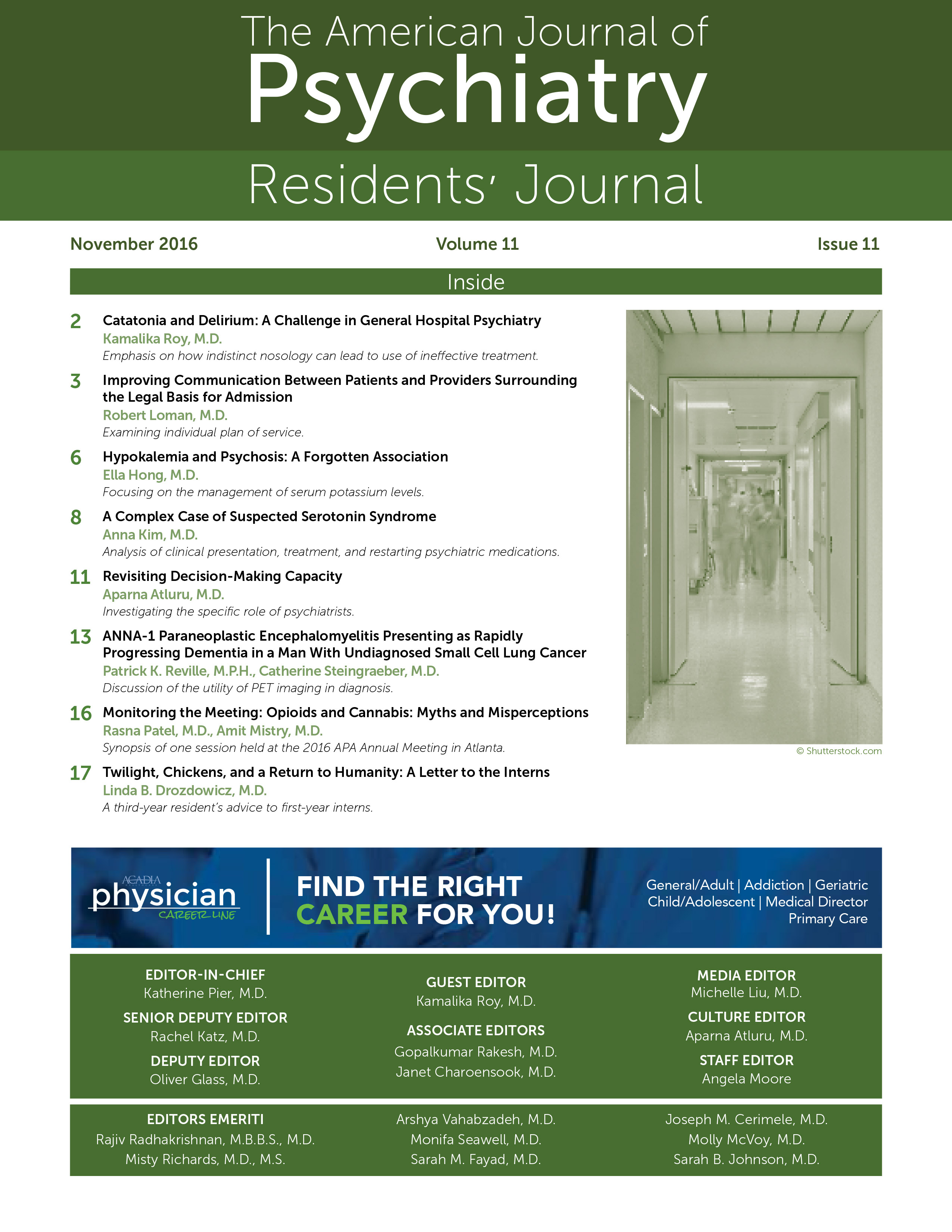Catatonia was historically described by Kahlbaum in 1874 as a disease with a cyclic course of melancholy, mania, stupor, and confusion. Kraepelin later postulated that catatonia was a feature of dementia praecox. Evidence has since shown that catatonia is largely associated with bipolar and depressive disorders (43%–45%) and general medical conditions (25%) (
1). In clinical settings, catatonia often goes undetected. For example, it was only formally diagnosed in 1.3% of patients in acute psychiatric settings, while two or more catatonic symptoms were present in 18% of cases (
2). This disconnect could be due to heterogeneity of clinical presentations wherein catatonic symptoms often overlap with the motoric symptoms of delirium and/or substance withdrawal.
According to DSM-5, delirium prohibits a formal diagnosis of catatonia due to another medical condition. Because of the overlapping symptoms, many remain convinced that one diagnosis necessarily excludes the other. Most accept that catatonia describes motor symptoms and not a disturbed sensorium.
Francis and Lopez-Canino (
3) systematically demonstrated the presence of catatonic symptoms in delirium patients. They proposed that catatonia may account for the motor components of hypoactive delirium. In another exploratory study, catatonia was present in 12.7% (using DSM-5 criteria) to 32% (using the Bush-Francis Catatonia Rating Scale) of subjects with Delirium Rating Scale-Revised-98 positive delirium (
4). These authors suggested that the requirement of clear consciousness for a diagnosis of catatonia in medical patients is more hypothetical than clinically useful. They also showed a high association between catatonia symptoms and the hypoactive or mixed type of delirium. Another study found that in some cases of alcohol and sedative-hypnotic withdrawal, patients met criteria for “withdrawal delirium” and “withdrawal catatonia” simultaneously (
5).
The debate over whether catatonia and delirium exist on a spectrum has treatment implications, as delirium is often treated with antipsychotics, which increase the risk of malignant catatonia. In contrast, benzodiazepines are often the first line of treatment in catatonia despite potentially worsening some components of delirium. Roy et al. (
6) described three such cases in which catatonia symptoms worsened with benzodiazepines and ultimately remitted with memantine, which may hold promise for the treatment of patients with such a degree of symptom overlap.
Perhaps antiquated terms such as “agrypnia excitata” or “excited sleeplessness” are more clinically useful and point toward a distinct subtype than delirium or catatonia in such cases (
5). Without nosological accuracy, we may delay effective treatments like benzodiazepines and ECT, thereby decreasing treatment responsiveness by the time ECT is initiated (given the delay in catatonia treatment is associated with less responsiveness to ECT), prolong hospitalizations, and increase mortality (
7). Furthermore, if we fail to capture the syndrome we hope to describe, research becomes imprecise. Ultimately, our ability to treat catatonia before it becomes malignant will rely on our ability to detect it even when delirium is evident in clinical settings. These complicated questions affect the prognoses of our patients and are the kinds of challenges that psychiatrists in the general hospital face every day.
Acknowledgments
The author thanks Drs. Stephen Warnick and Katherine Pier for their assistance.
